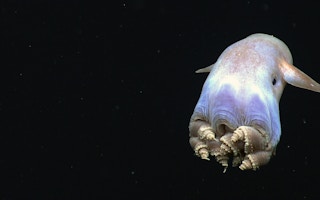What is going on?
While many have long suspected it, it is nice to have it finally confirmed - animals have feelings.
The United Kingdom has extended its Animal Welfare Bill to include octopuses, crabs and lobsters as sentient beings. The extension to the current scope of animals included in the Bill came as a result of a London School of Economics research article which said that there was strong scientific evidence that these animals have the capacity to experience “pain, pleasure, boredom, excitement, frustration, anxiety and joy”. This is hardly surprising for anyone who has watched the Oscar award winning movie My Octopus Teacher, that tracked how a South African filmmaker formed a unique bond with an octopus.
Humane Society International and other animal rights networks praised the UK’s evidence-based approach. The organisations also called for research on animals’ sentience to be based on science, rather than political preferences, cultural preferences or convenience. The Bill aims to limit cruel commercial practices and protect animals from painful deaths such as boiling lobsters alive.
Why is it important?
Caring about animal rights is simply the smart and right thing to do.
- We are part of an ecosystem and should respect pets, livestock and wild animals. Many of us have dogs or cats and we would do anything to protect them, so why not extend this attitude beyond our household?
- Ethics aside, animal welfare ought to be considered for commercial purposes due to obvious Environmental, Social and Governance (ESG) risks in the food industry. Supply chain management, mortality rates, antibiotic use or reputational damages are issues that can affect the profitability of food companies. The need to assess the food industry’s relationship with its animal practices led to the formation of the Business Benchmark on Farm Animal Welfare, which allowed investors to asses welfare management, policy commitment, performance and disclosure in food companies.
- Last but not least, we are still in the middle of a global pandemic, the cause of which is linked to the live-animals market. Intensive farming, associated with issues such as antibiotics resistance, is responsible for more than half of all infectious diseases passing between animals and people since 1940. Considering the improvement of animal-welfare through more viable farming practices could help us on the health front.
Ethics, commercials, and health… what else do we need to start caring about animal-rights?
What is the message?
Animal welfare concerns farmers, investors, consumers and the animals themselves. Your attitude can be reflected in your actions - from your dinner plate to the alignment of your investment portfolio. If you are an animal welfare-minded investor and would like to limit your allocation to any animal-based products, learn more about the trend by reading this paper on vegan investment.
In the meantime why not re-watch some documentaries? Other than ‘My Octopus Teacher’, we also recommend Octopussy and The Lobster.


















